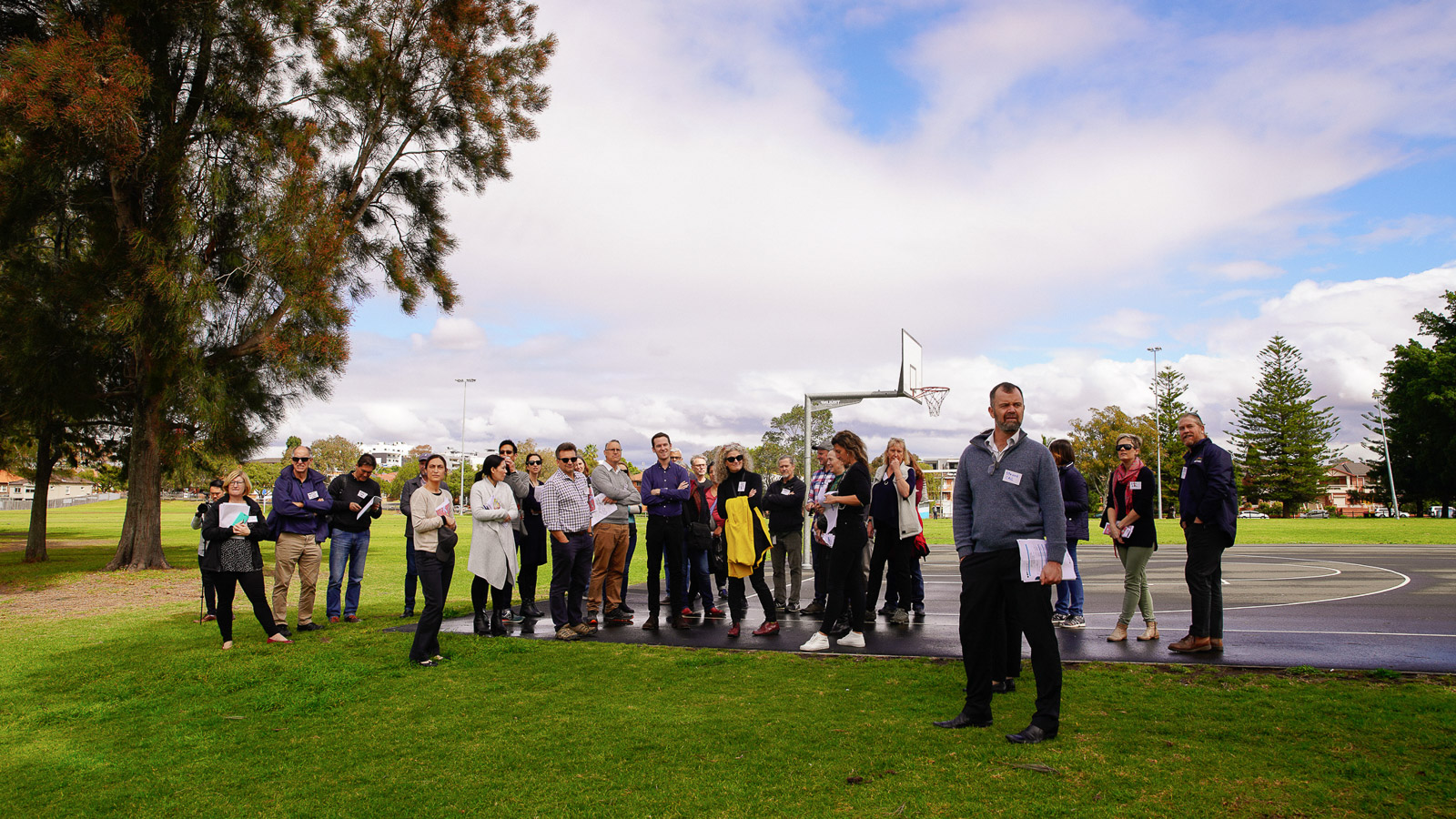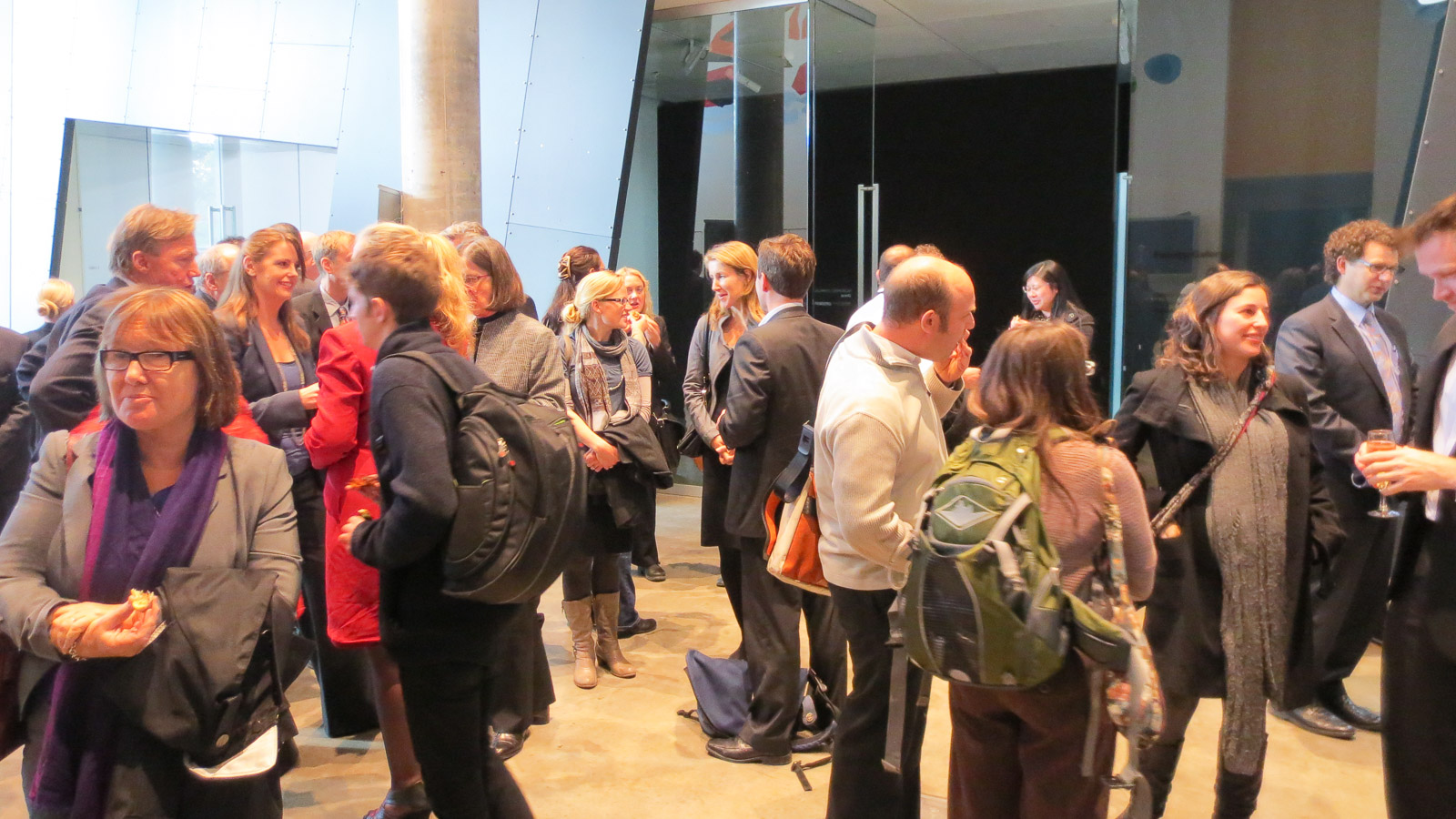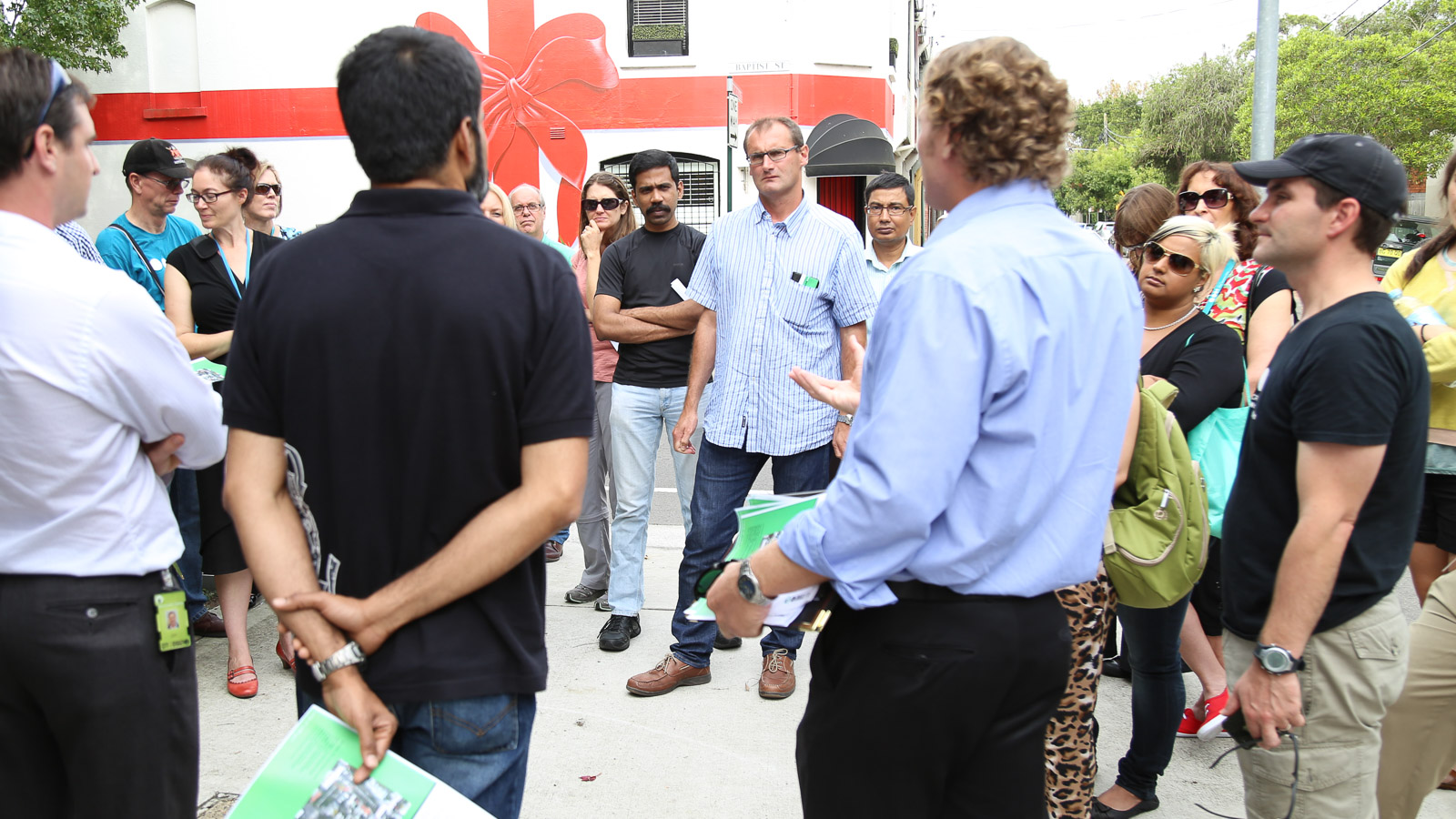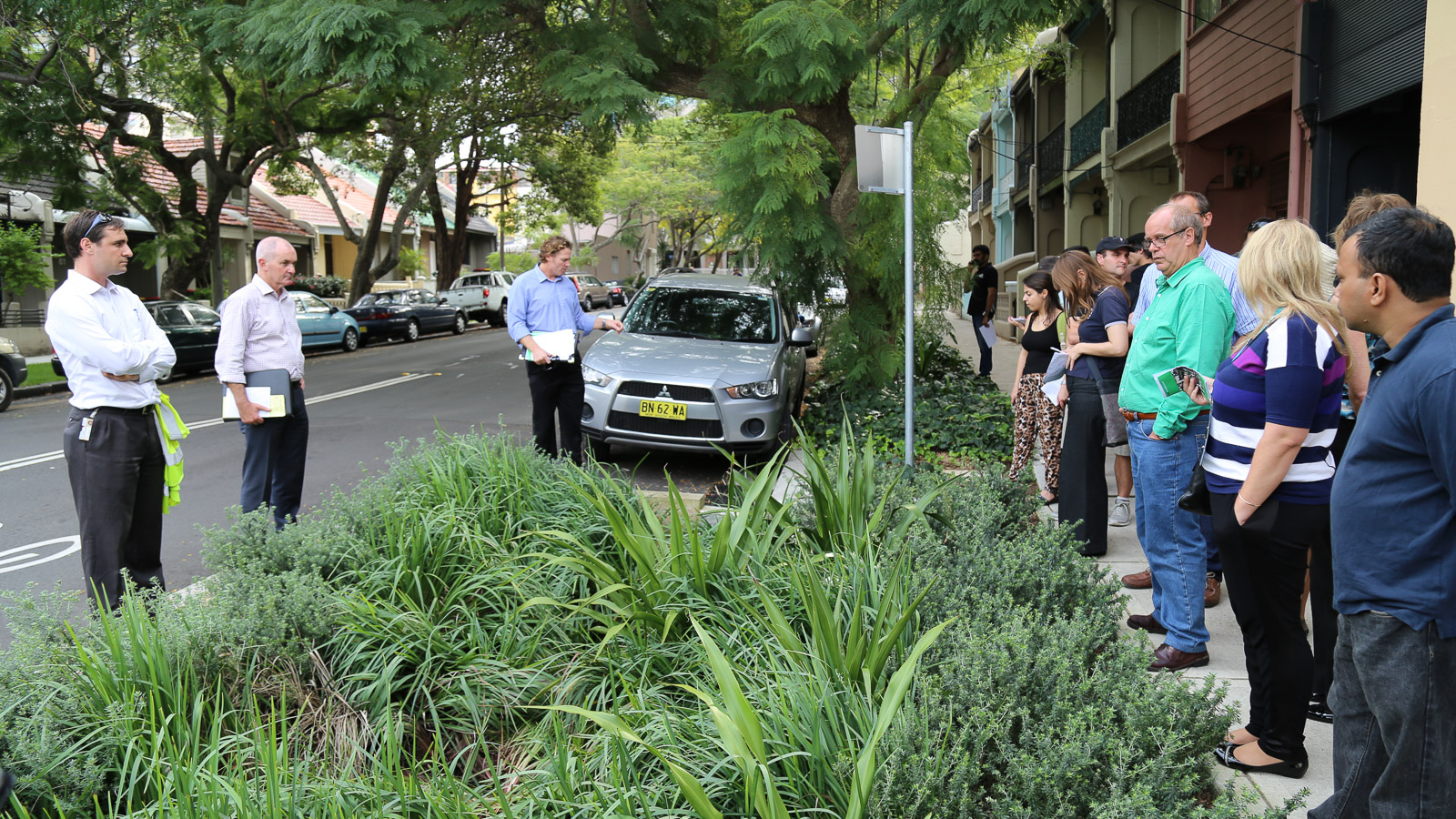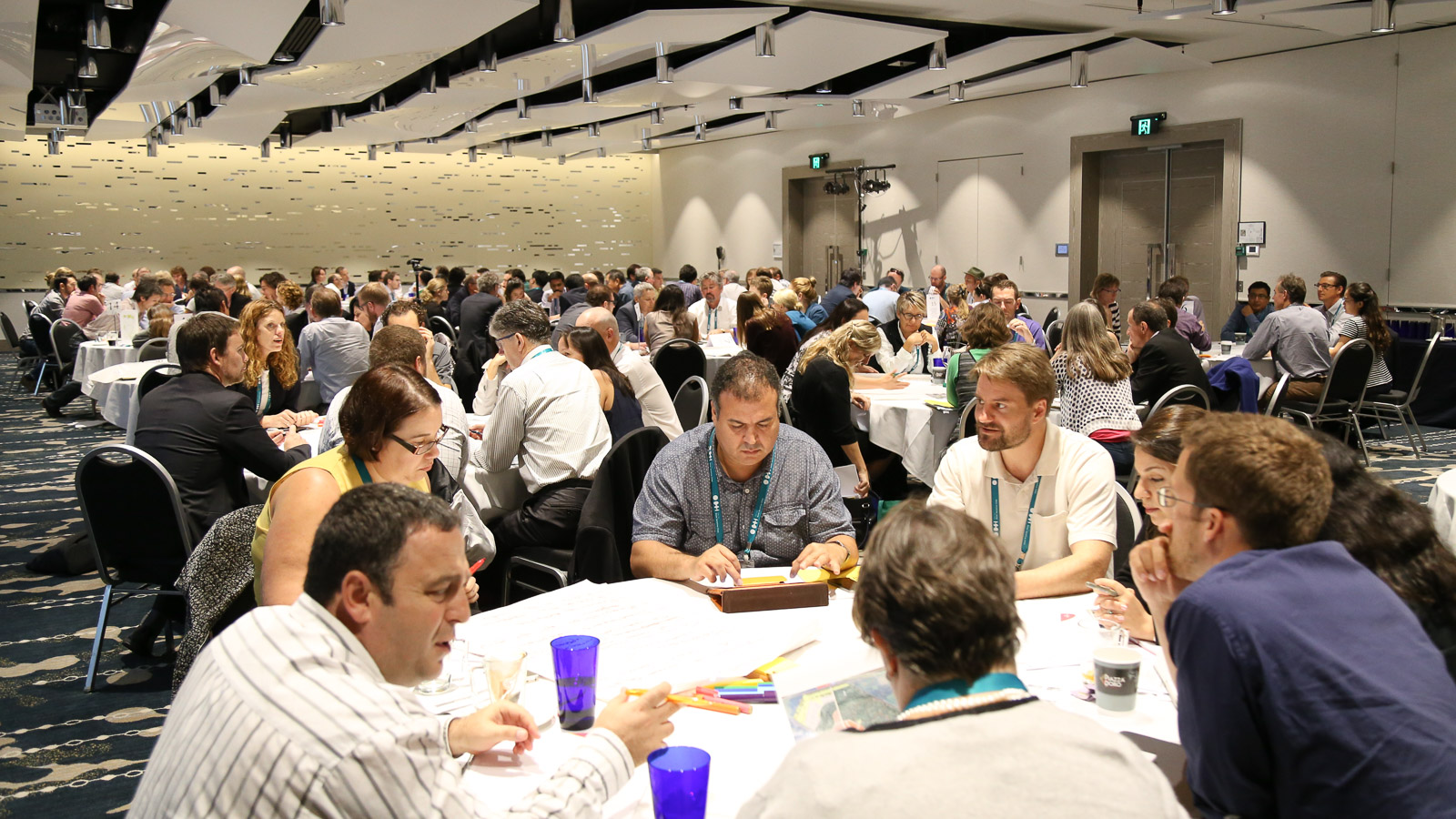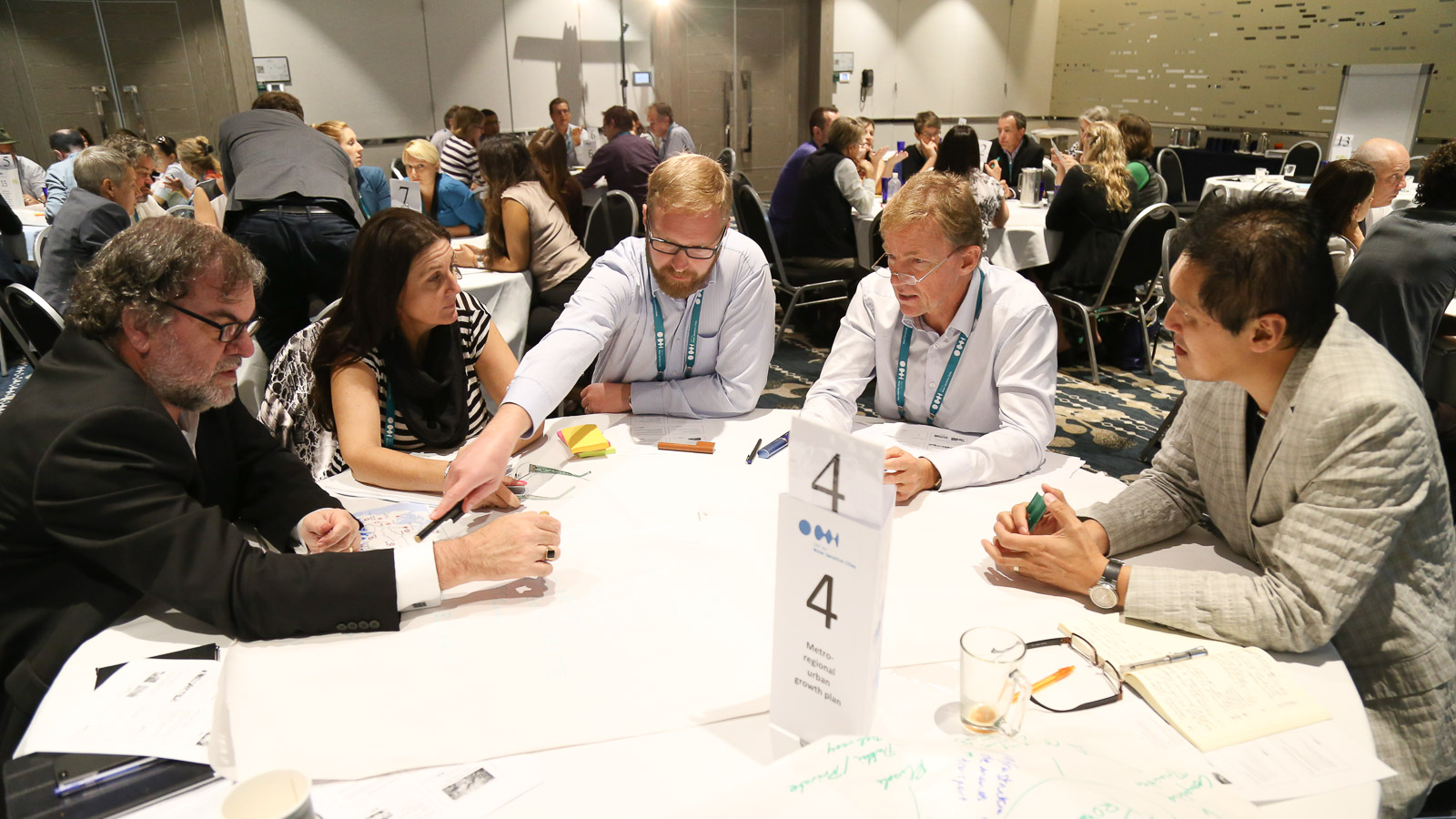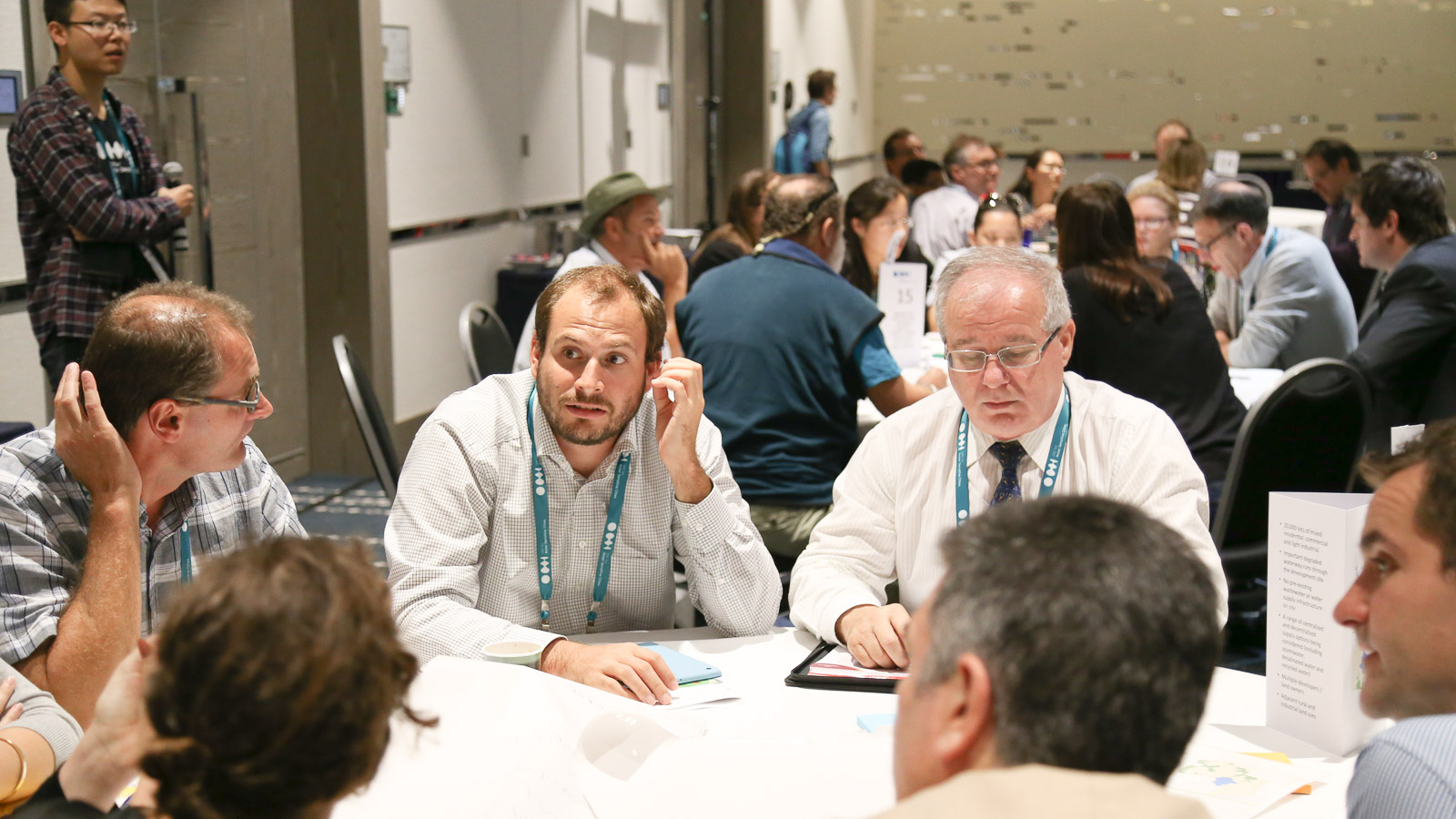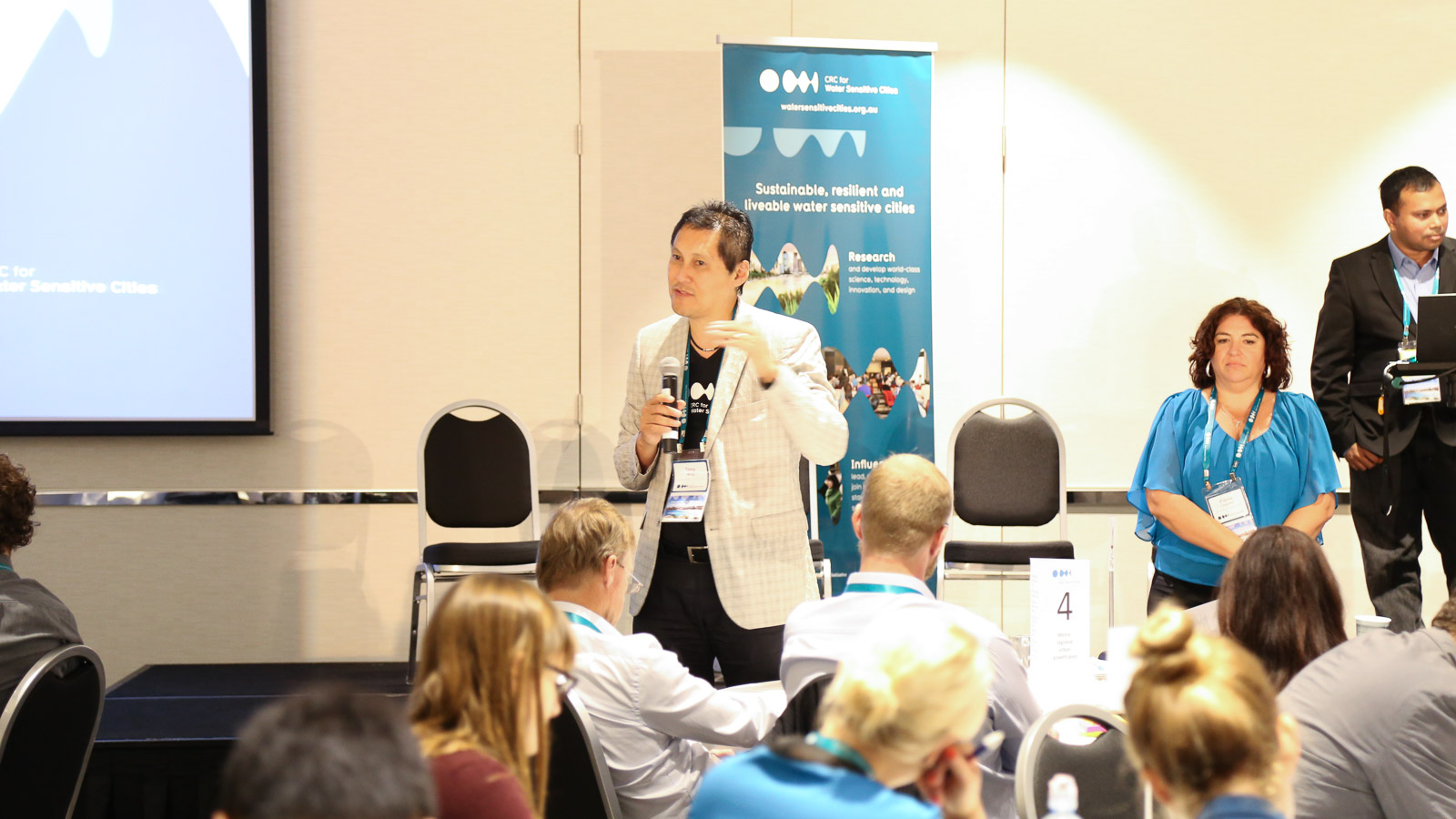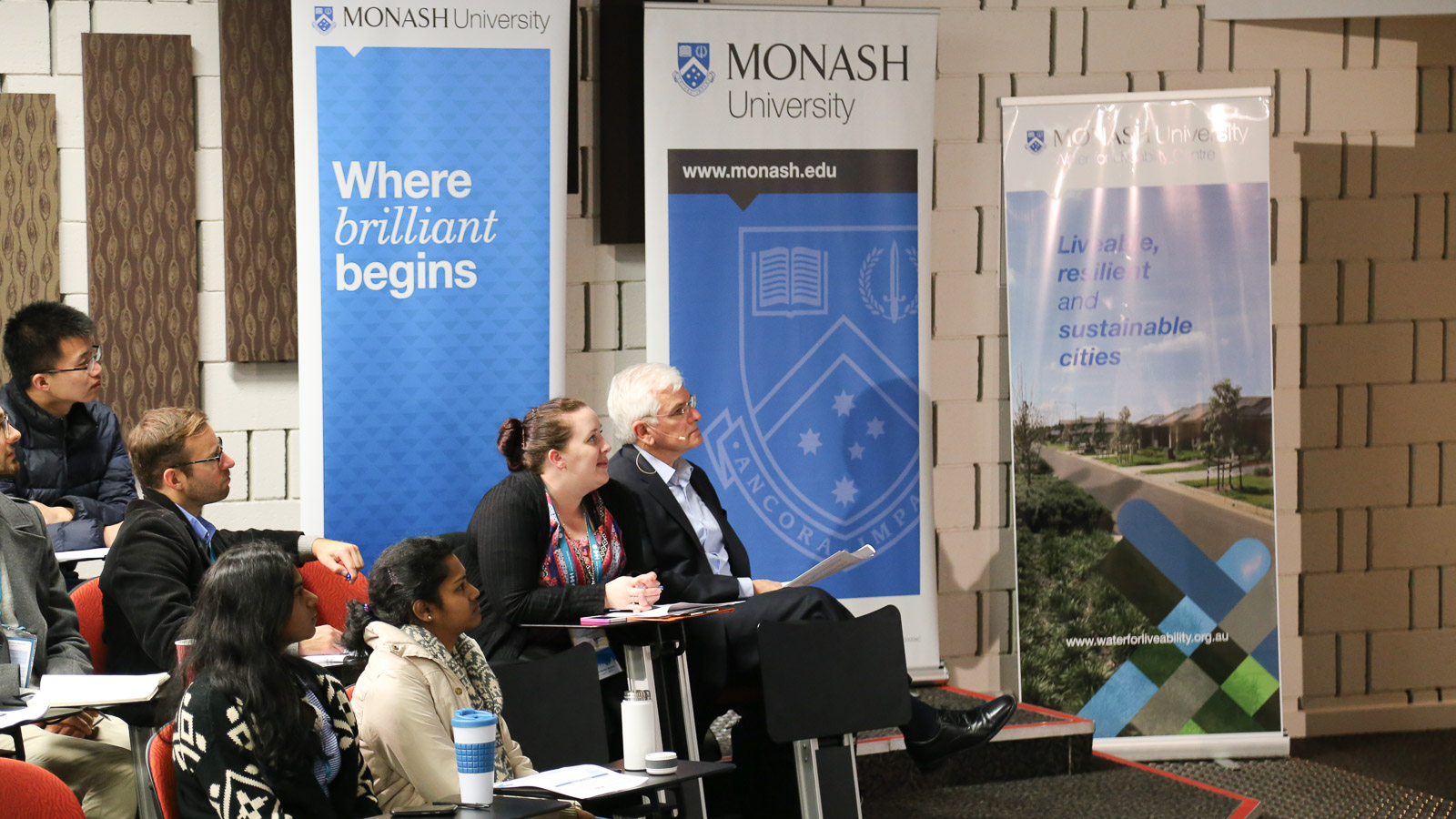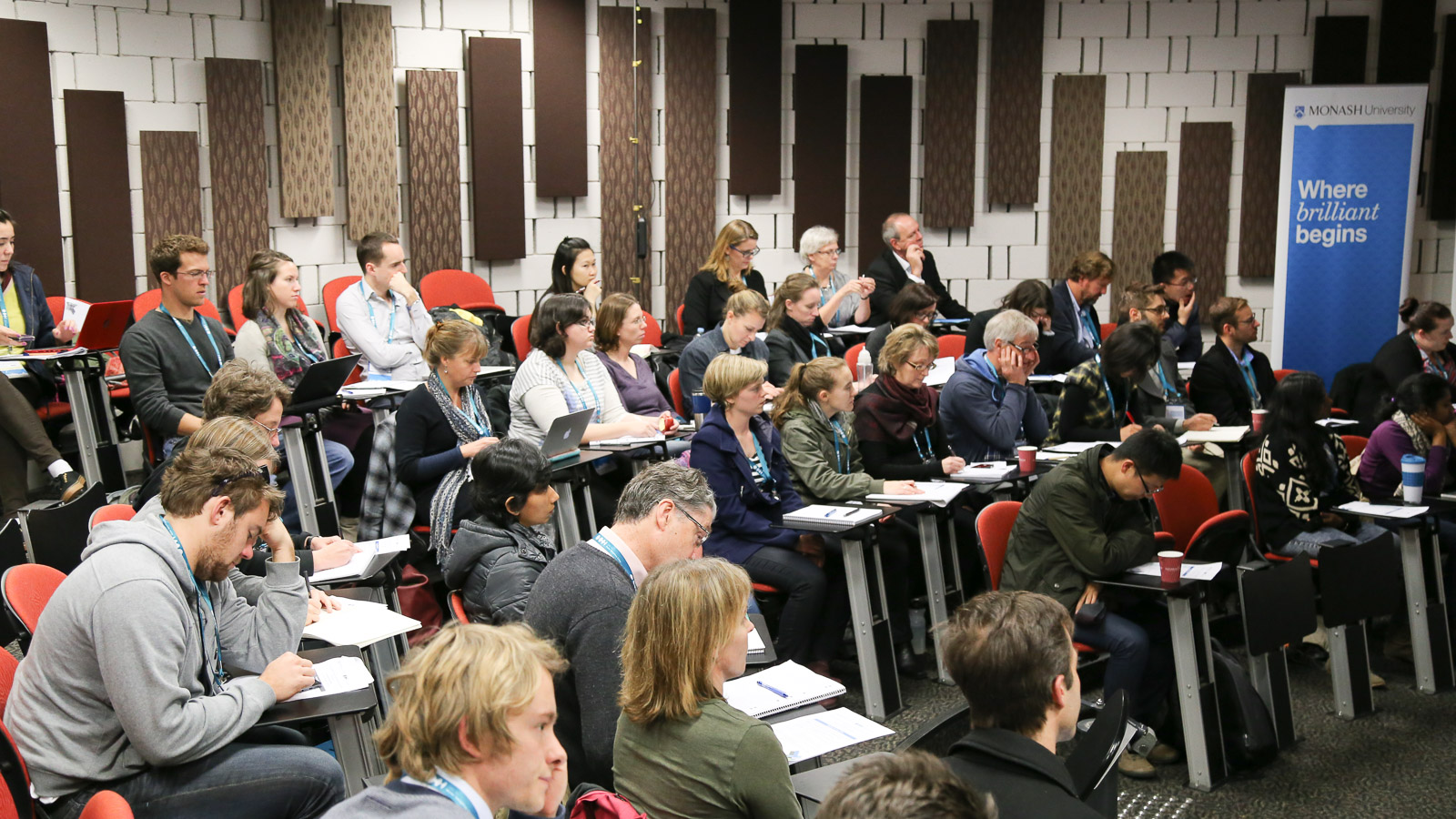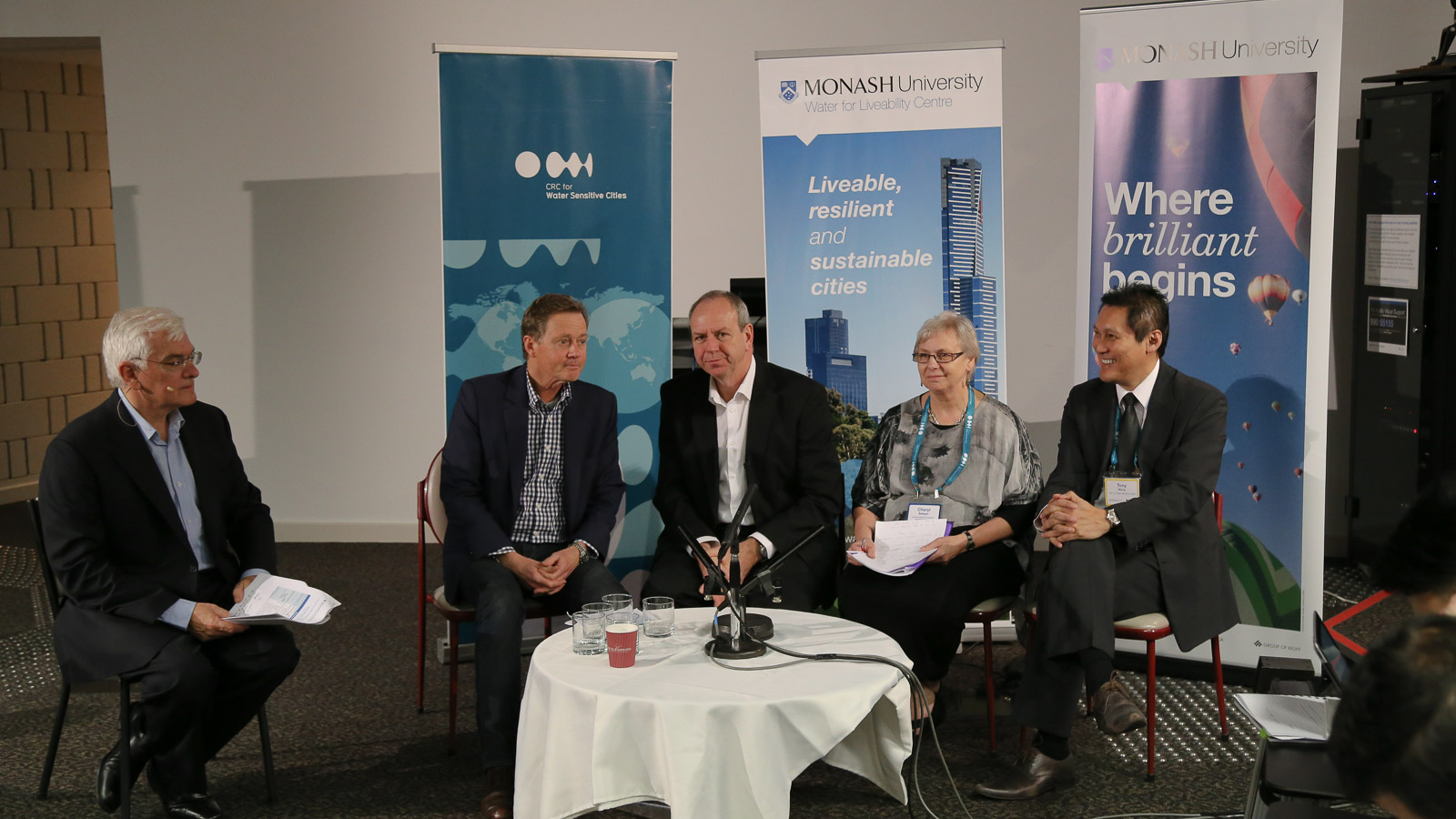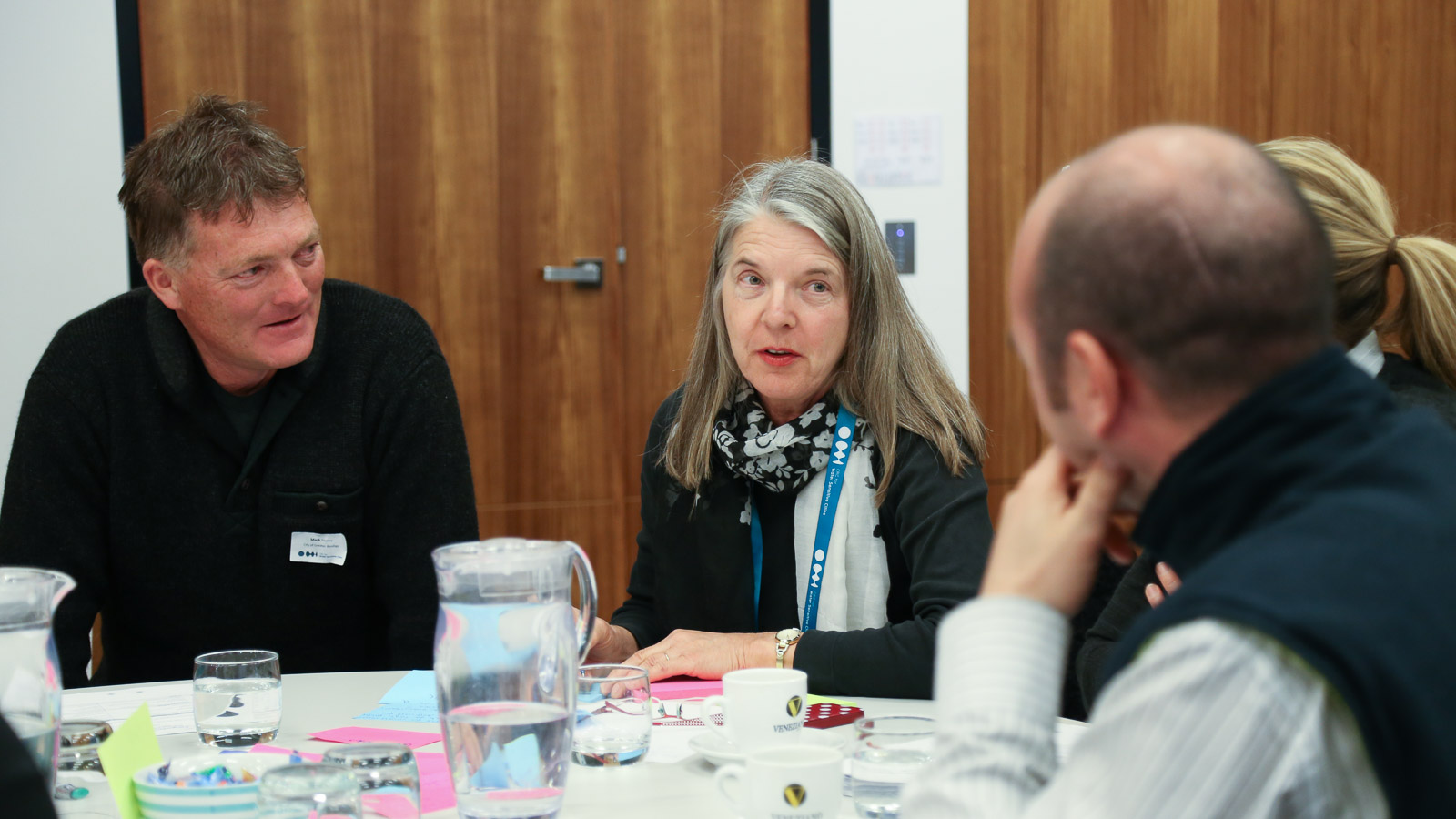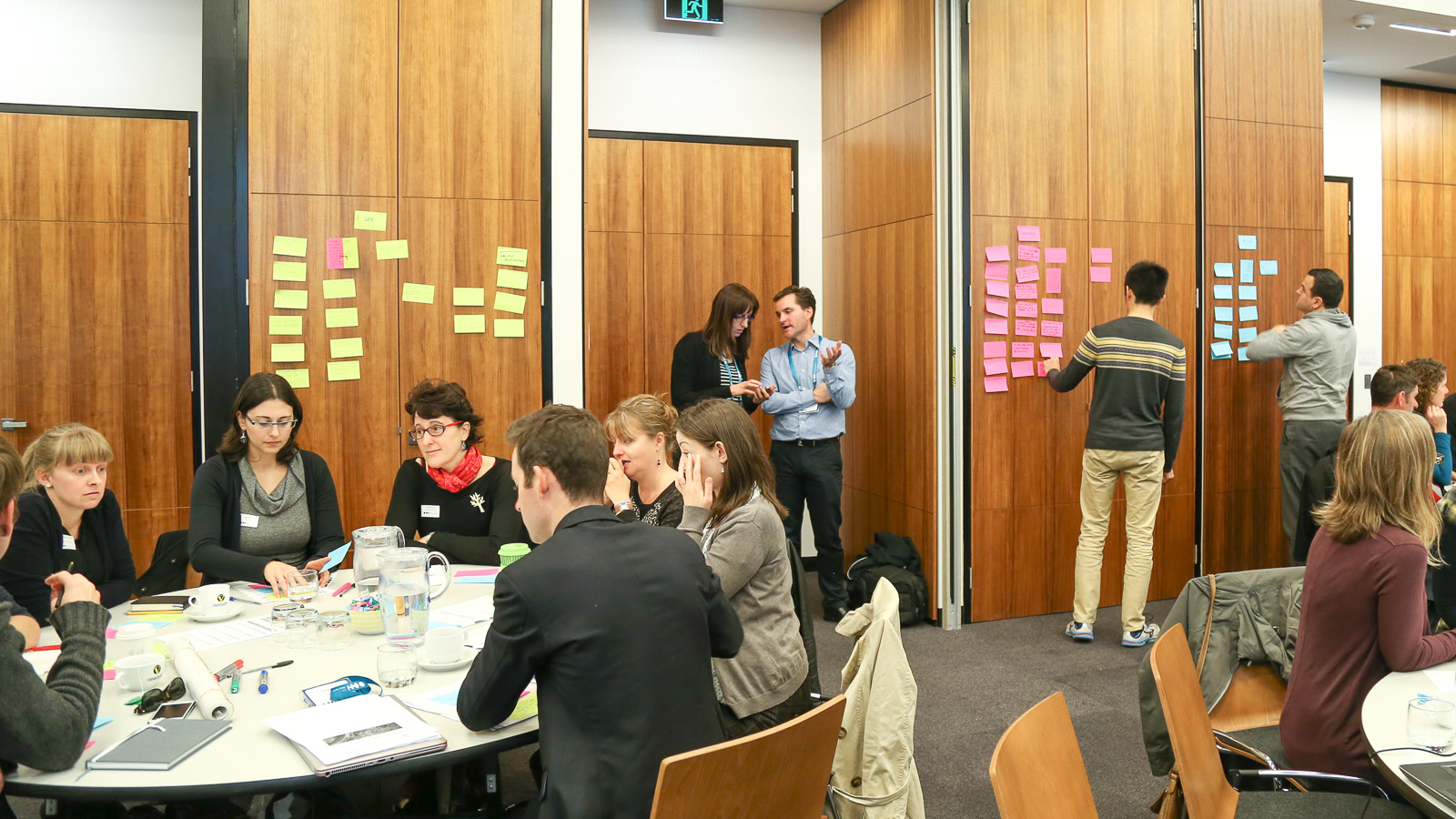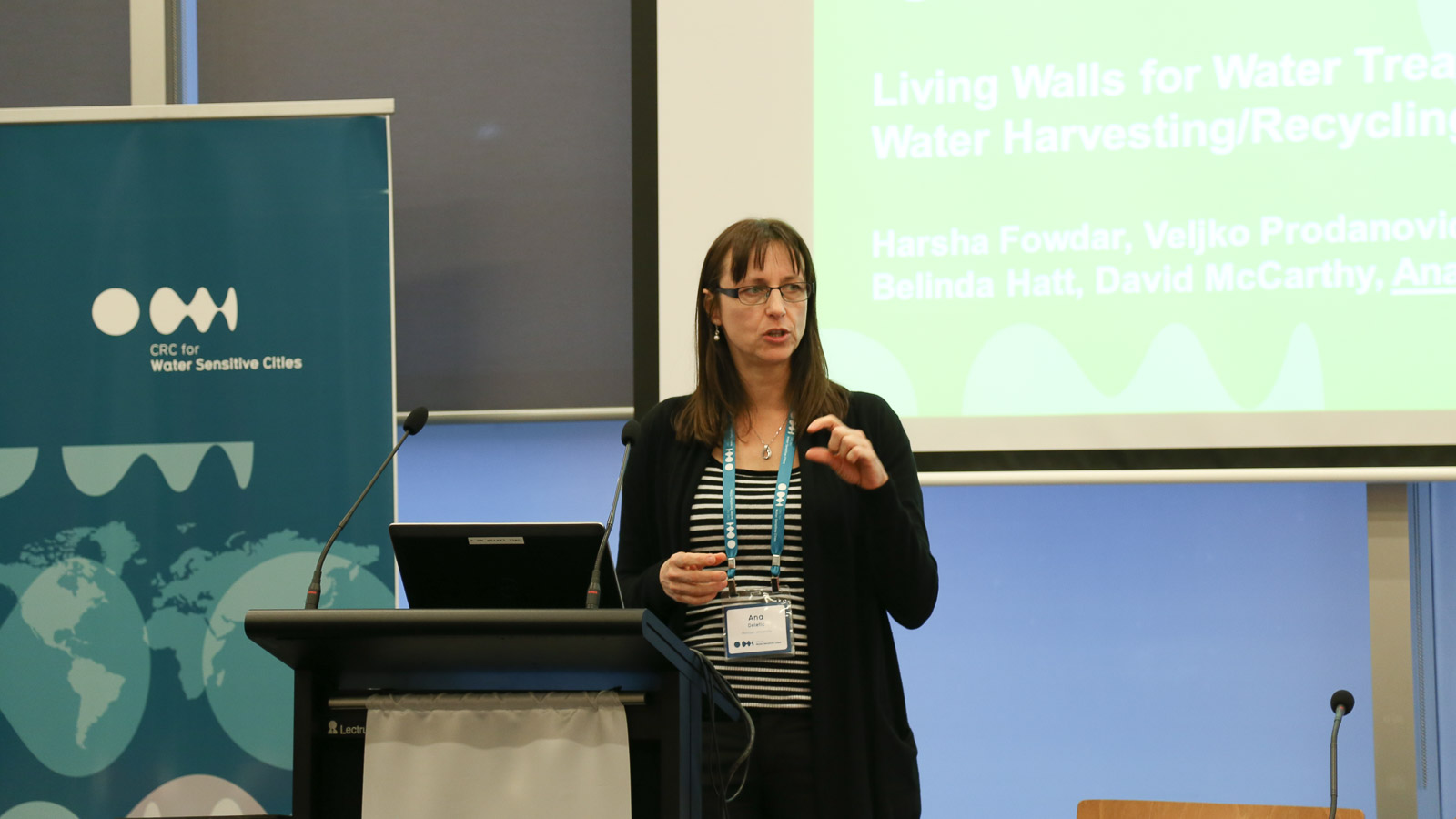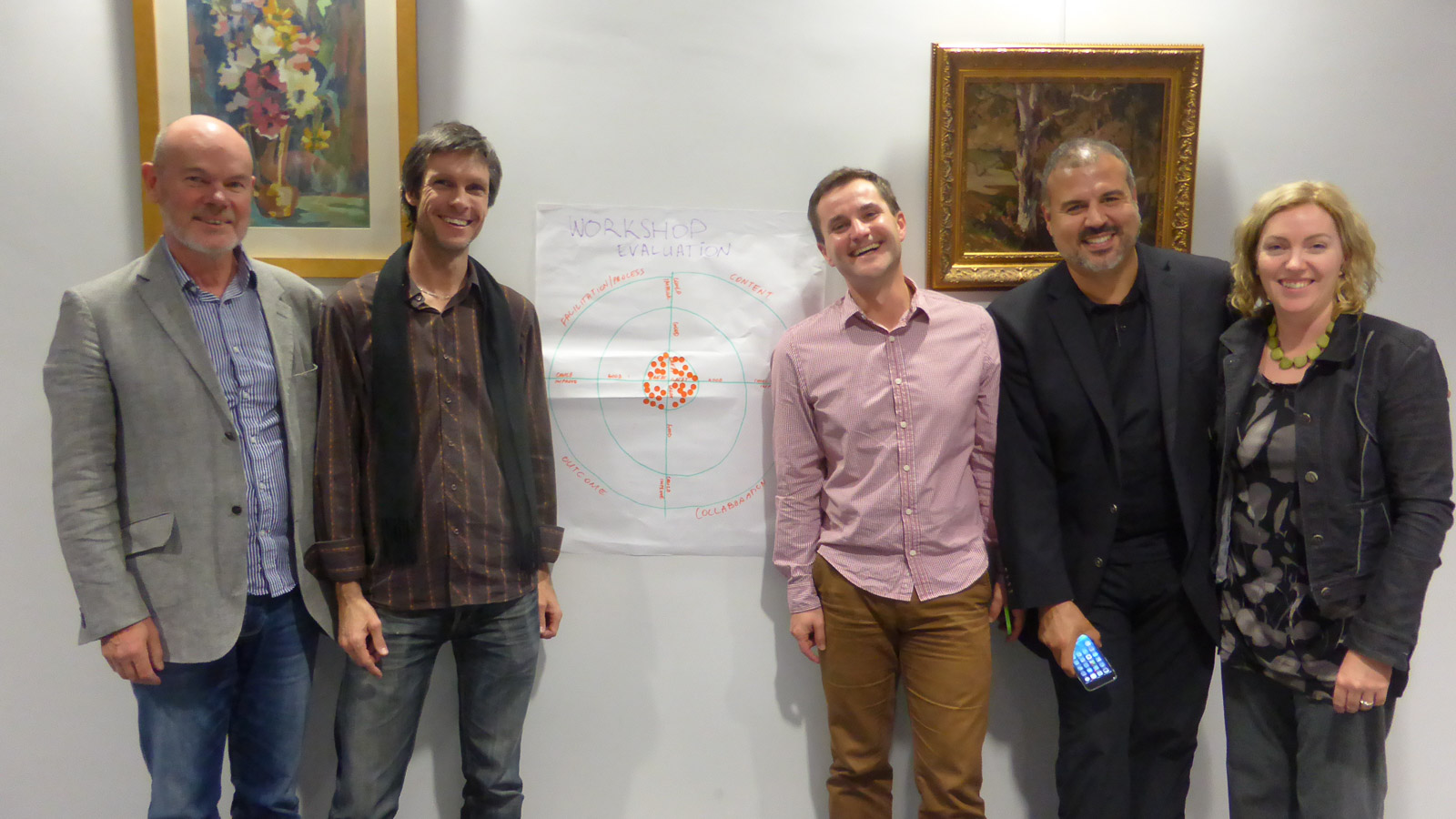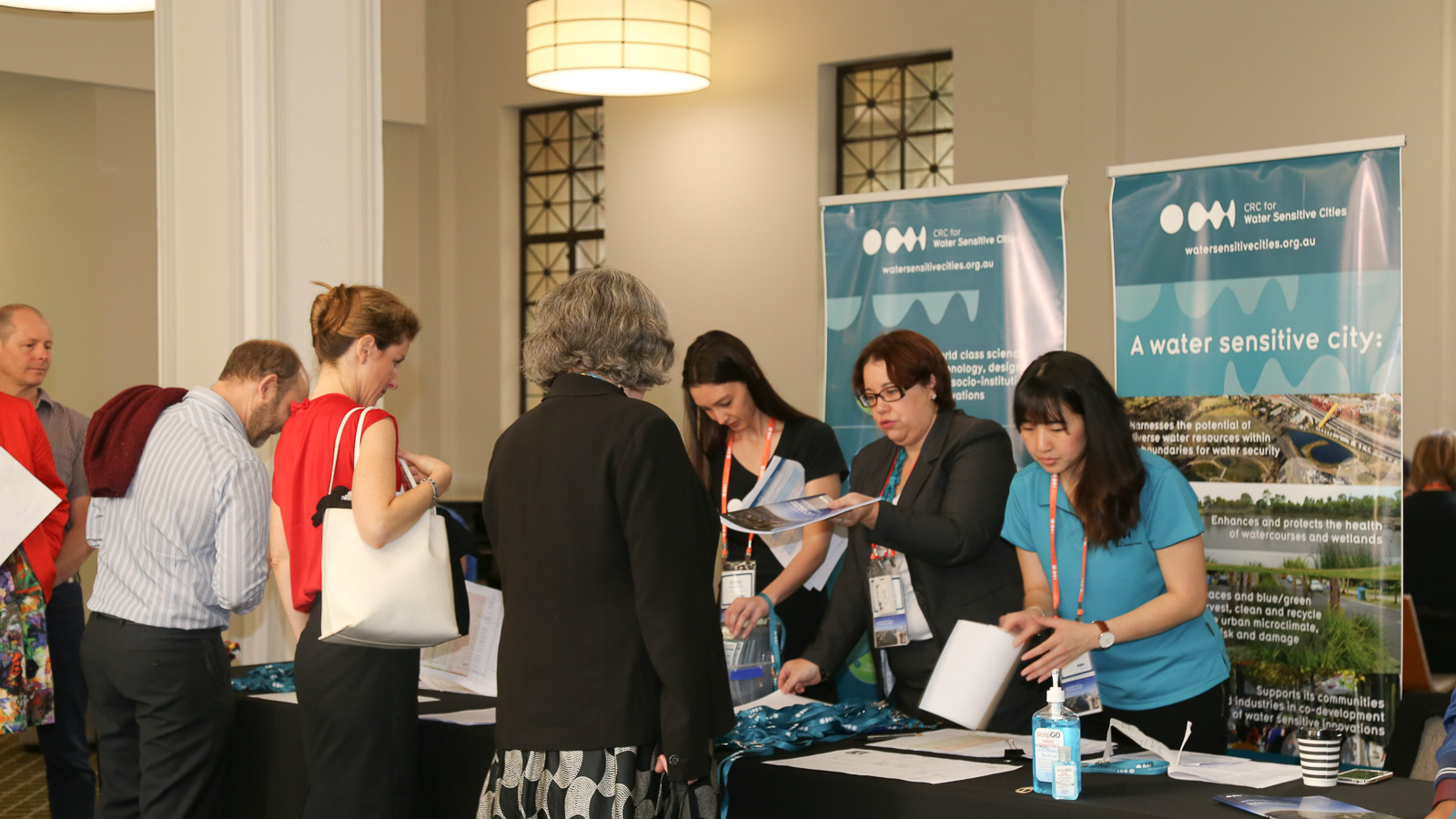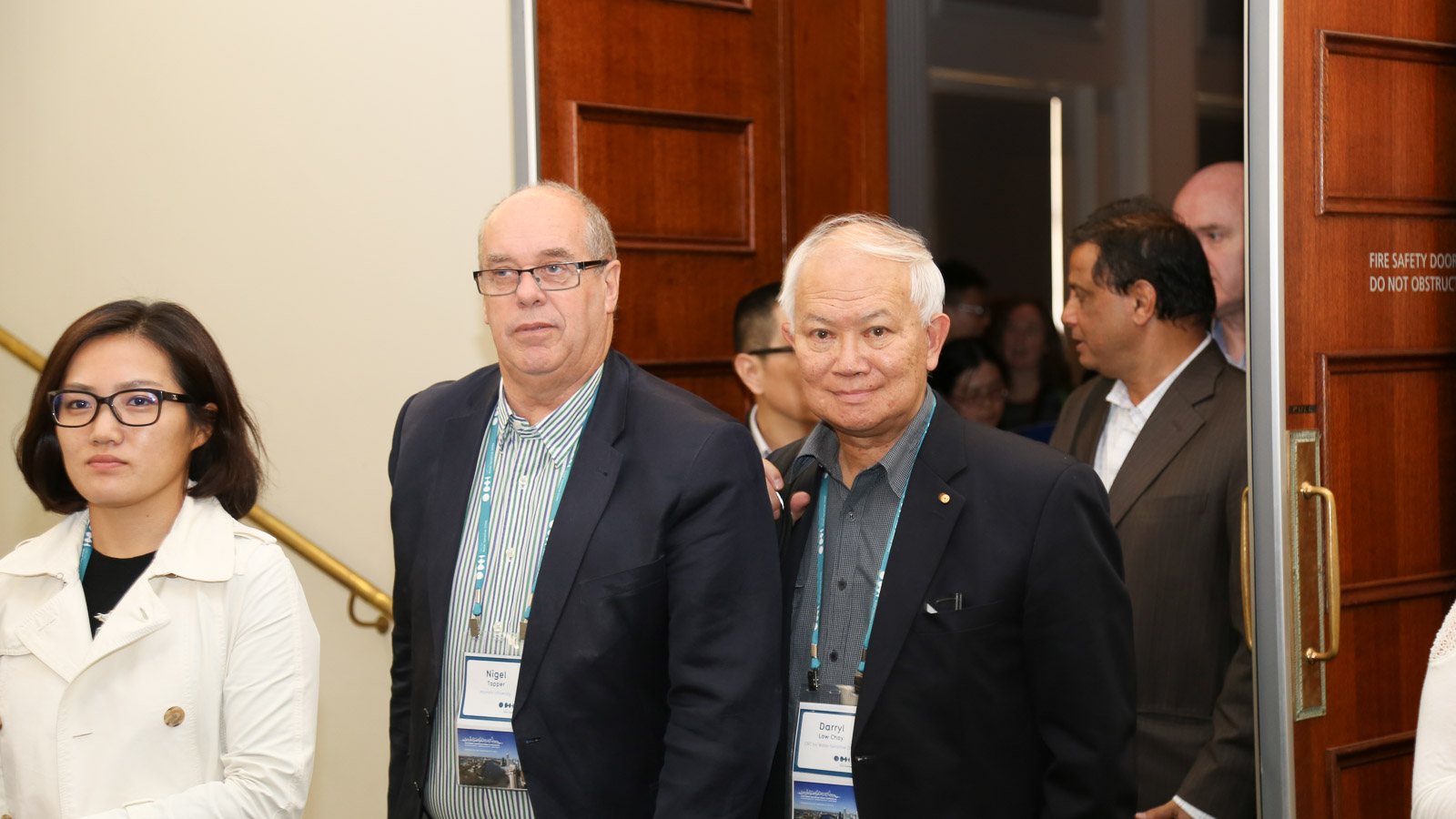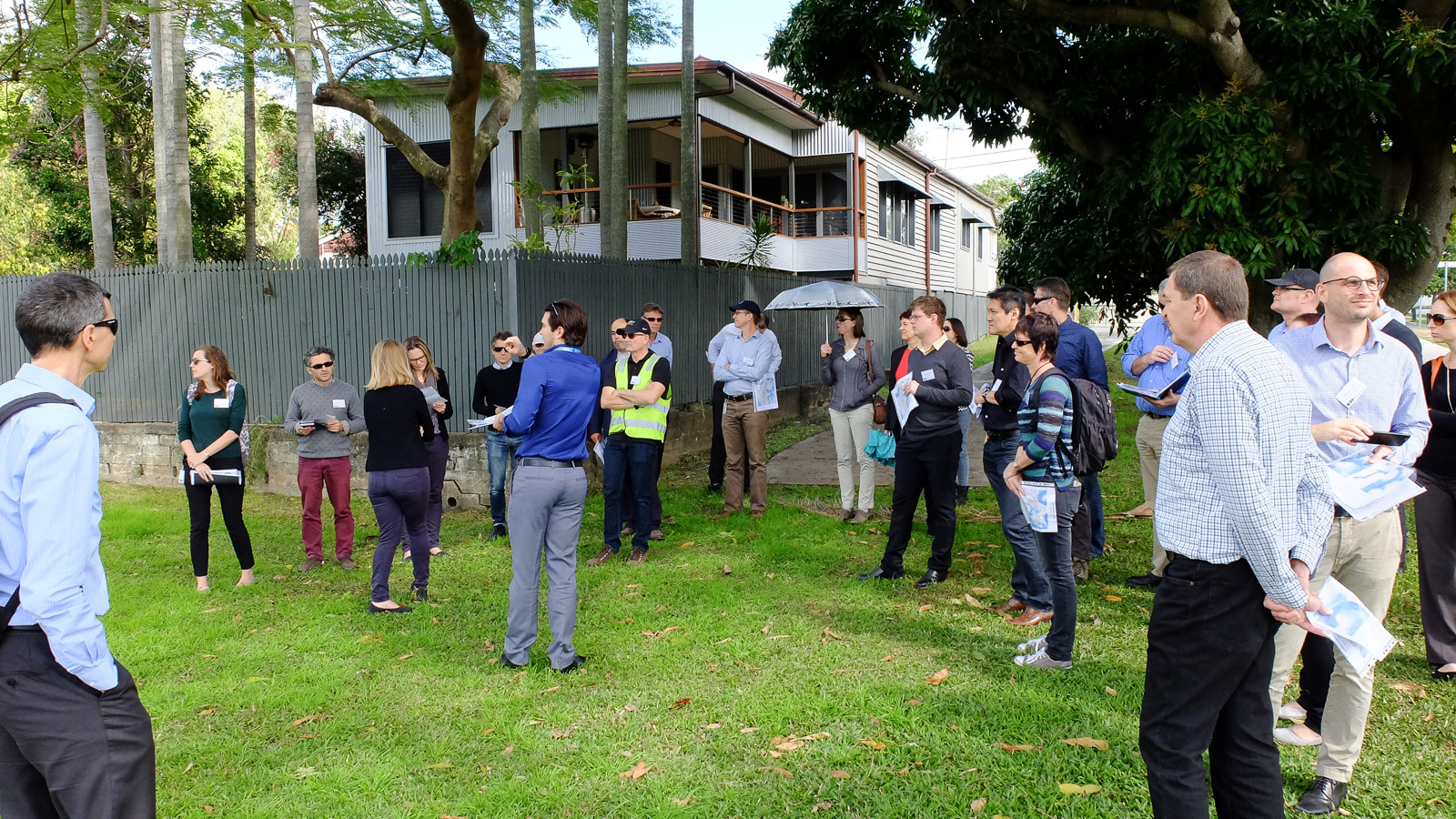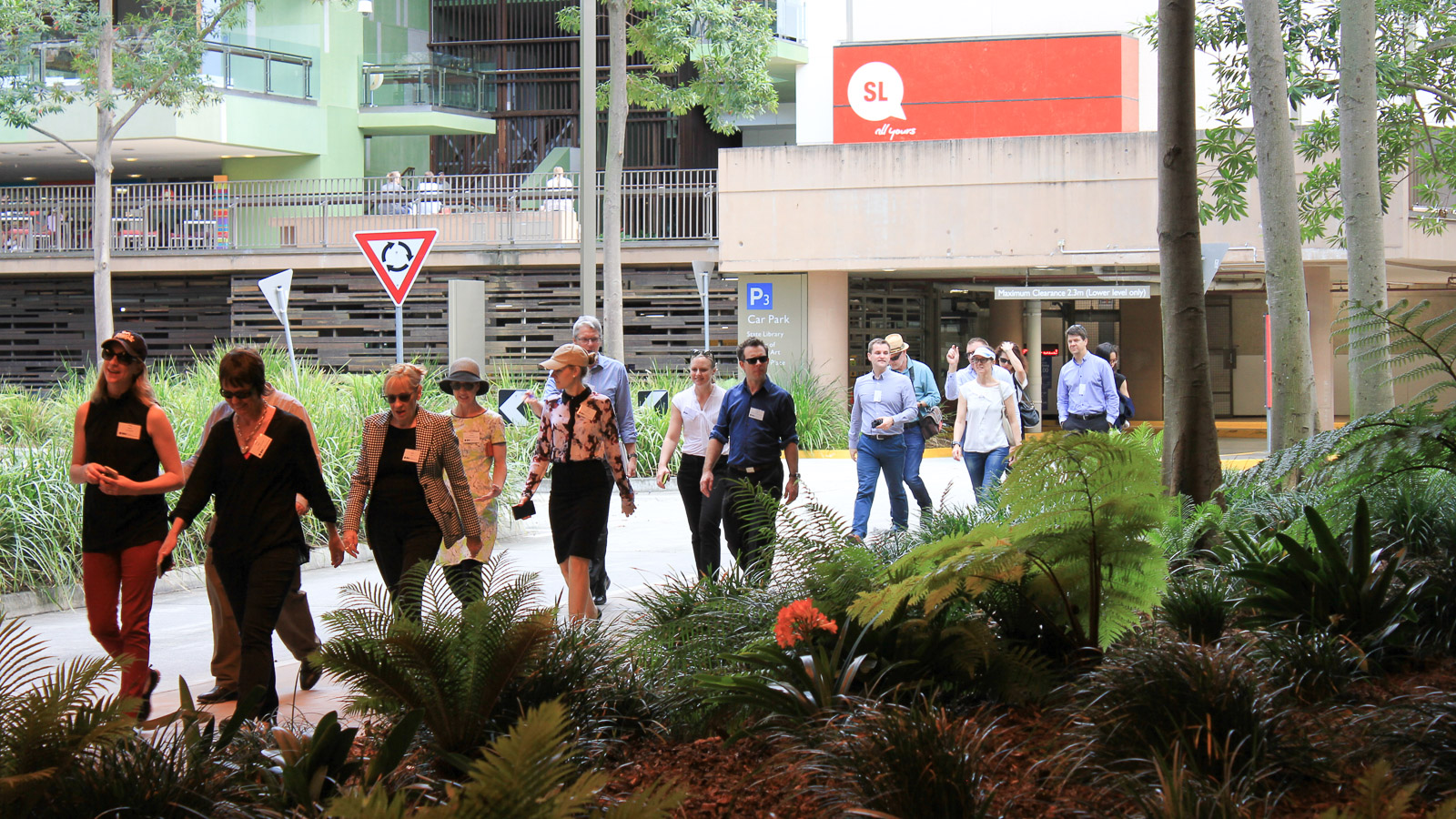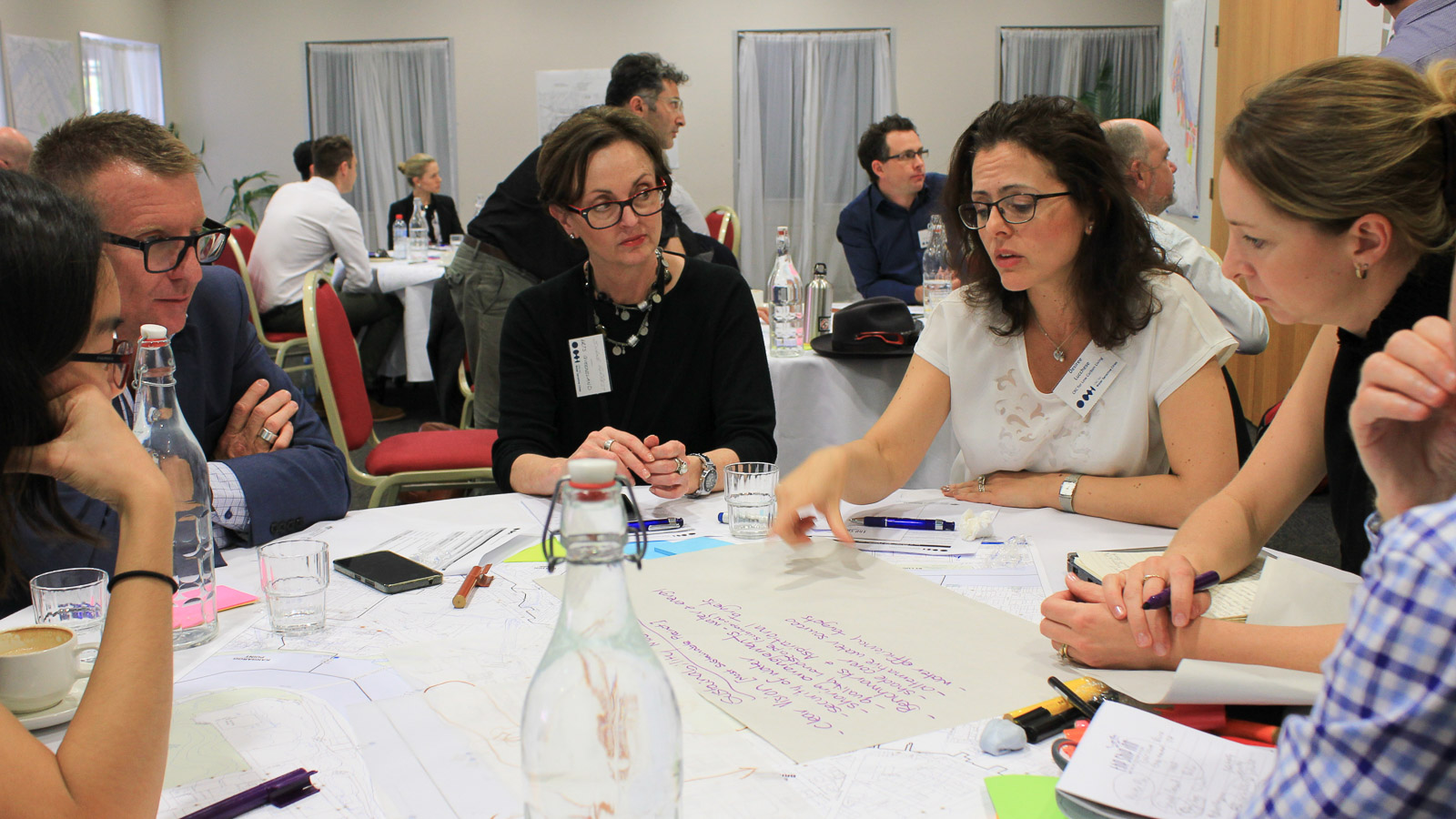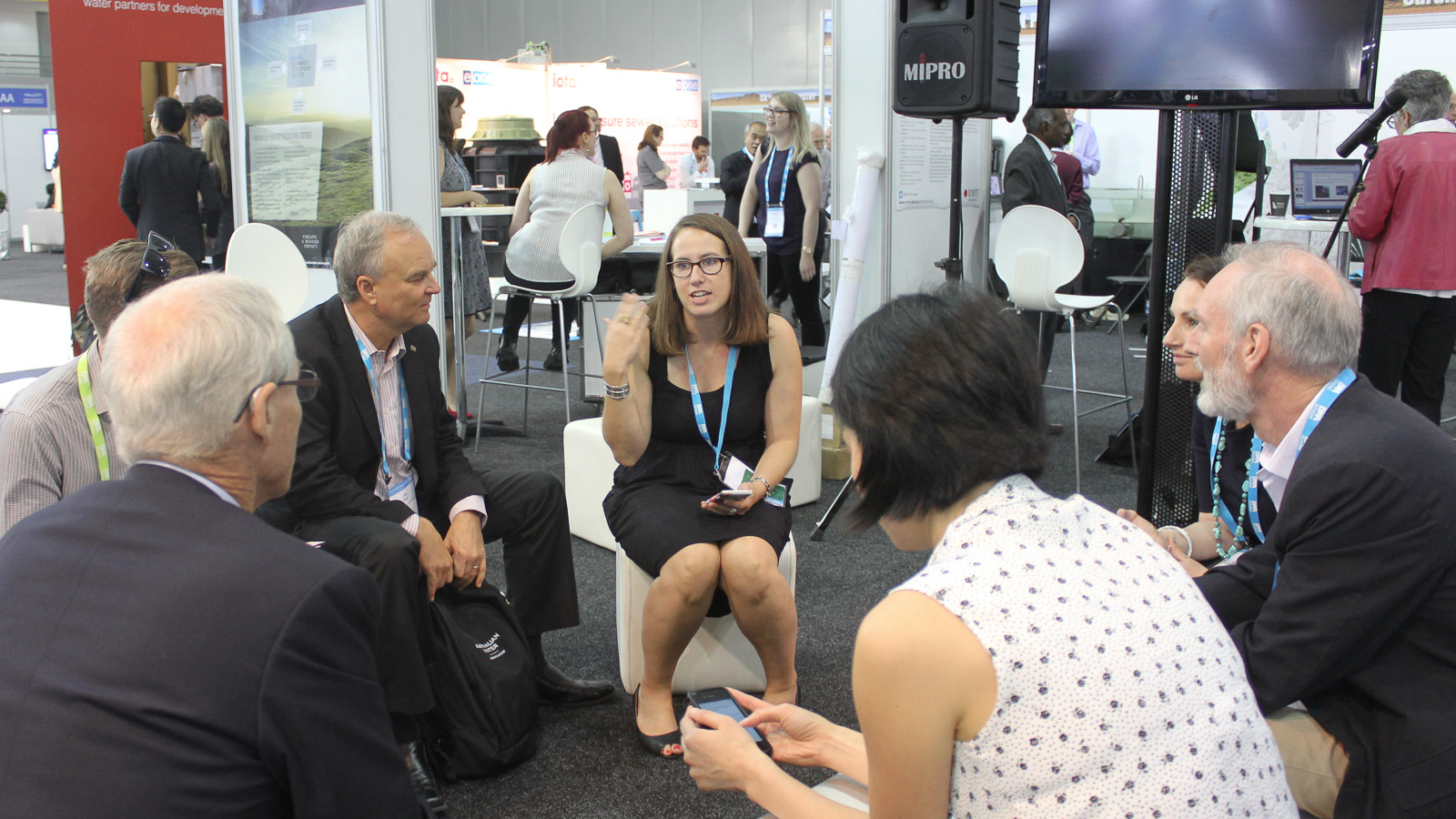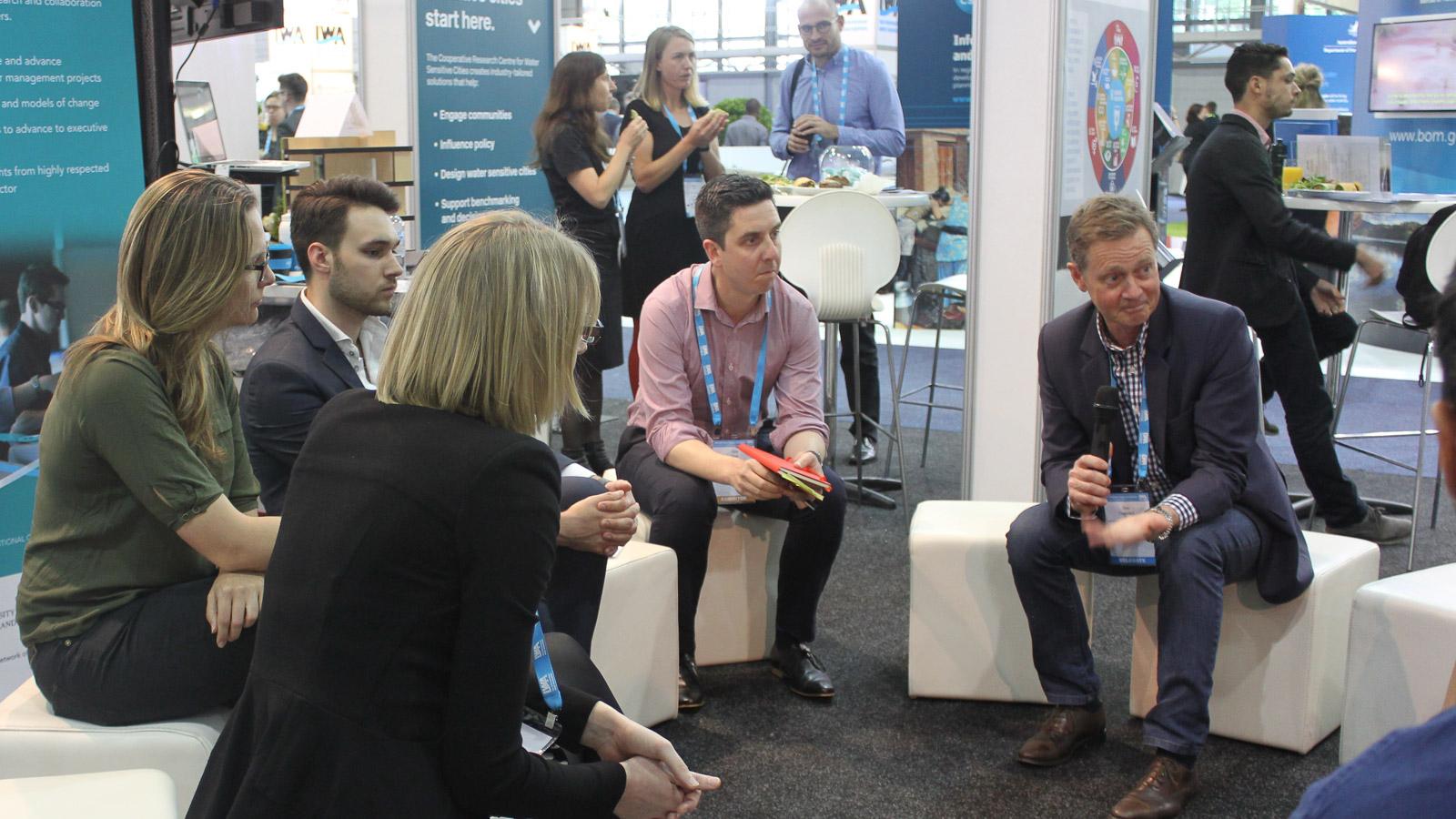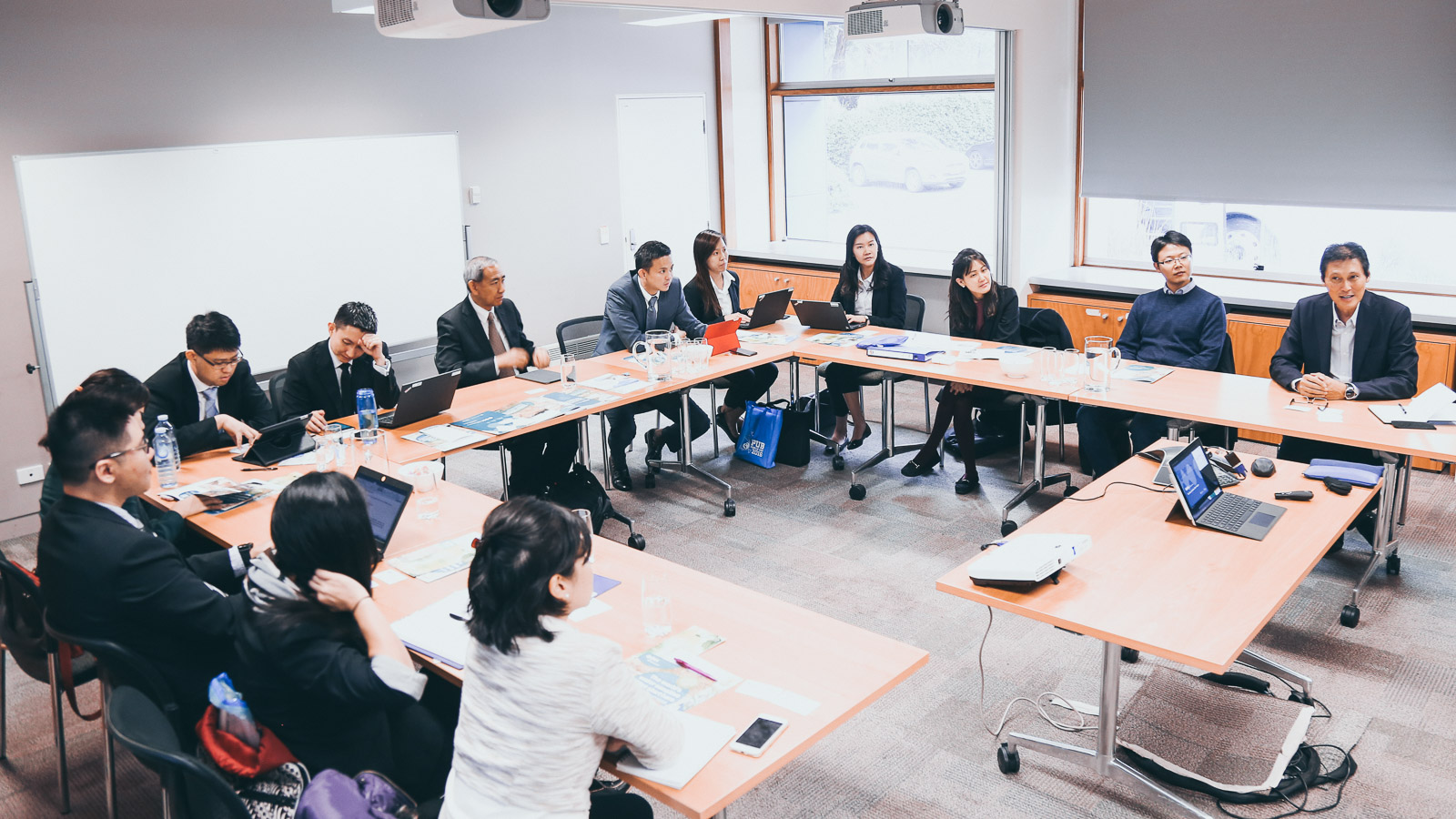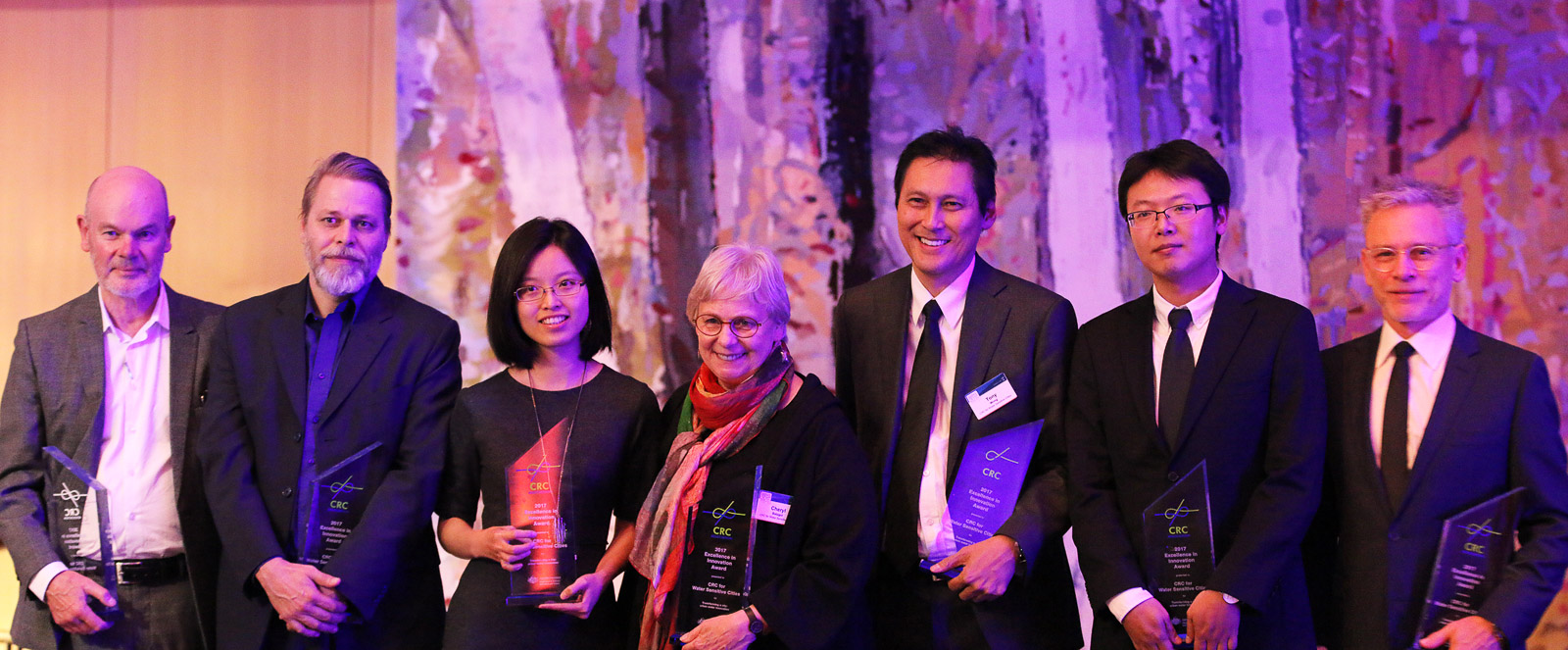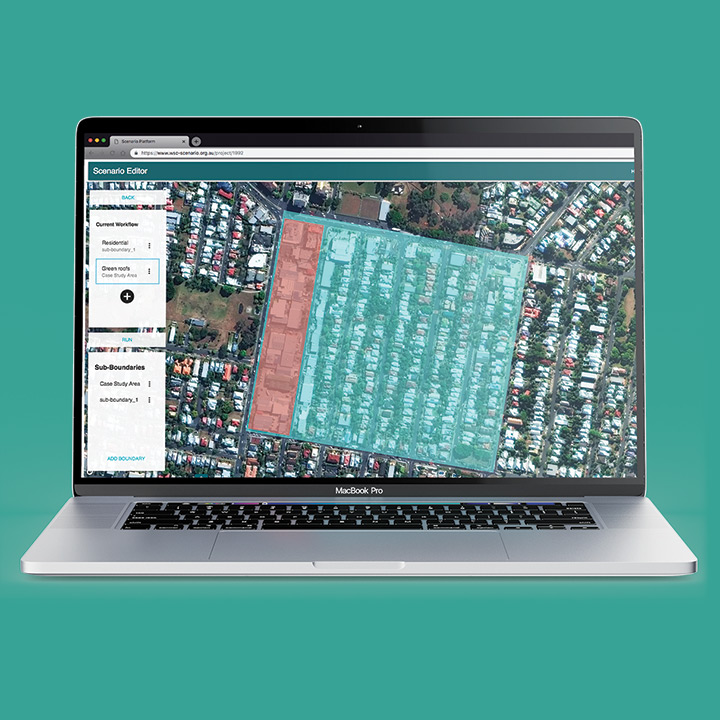The CRC for Water Sensitive Cities laid the foundations for water sensitive practice in every city, every day
The CRC for Water Sensitive Cities (CRCWSC) began in 2012 with a vision:
Sustainable, resilient, productive and liveable cities and towns that value water’s contribution to economic development and growth, our quality of life, and the ecosystems of which cities are a part.
Over 9 years, we formed a strong, national partnership between practitioners and researchers that unlocked new ways to manage urban water: new water sources and how they can be harnessed, new tools for measuring water performance, new ways of identifying and quantifying the benefits and costs of water sensitive approaches, and new processes for identifying water sensitive visions and deciding actions to turn that water sensitive vision into reality.
Together, we demonstrated these new techniques work in practice in a range of settings, both nationally and internationally, through works on-ground and in policy. Then, we used the lessons from these on-ground applications to create, revise and refine a suite of tools, processes and guidelines that are now being deployed nationally and internationally. The current versions of these tools are freely available on the CRCWSC’s Knowledge Platform:
- WSC Index Tool. This tool allows users to benchmark their cities based on performance in a range of urban water indicators that characterise a water sensitive city. The tool was expanded to integrate a Sustainable Development Goals filter, enabling analysis of how a water sensitive cities approach can help achieve SDG targets, and vice versa.
- WSC Transition Planning Process. These process methodology and diagnostic tools guide water sensitive city transition planning in a range of contexts, building on vision and transition strategies.
- Transition Dynamics Framework. This framework is used to understand and prioritise implementation actions to ensure the formal and informal precursors for city transition are in place. It also allows users to identify strategies to advance a city’s water sensitive city transition. We have worked with a range of industry partners to adapt and apply the framework for their contexts to guide transition planning.
- INFFEWS Benefit Cost Analysis Tool. This tool for assessing water sensitive investments supports balanced and systematic decision making and provides evidence for use in business cases.
- INFFEWS Value Tool. This tool gives practitioners a way of valuing the benefits of water sensitive projects that are not traded in markets, such as the social and environmental benefits. This comprehensive database contains 2000+ non-market values of water sensitive systems and practices.
- Guiding integrated urban and water planning framework. This conceptual framework for integrated urban and water planning guides urban development in different contexts to achieve water sensitive outcomes. The framework highlights 5 distinct but interrelated planning activities that can be applied in a wide range of contexts.
- Infill Performance Evaluation Framework. The framework evaluates the water performance of developments at the site scale for individual lots and dwellings. It also considers aspects of architectural design, urban space and heat analysis.
- Infill Typologies Catalogue. The catalogue showcases a range of housing typologies at densities and configurations relevant to Australian cities, applicable to different contemporary infill development scenarios, and evaluated by their water sensitive performance.
- Site-scale Urban Water Mass Balance Assessment Tool. The tool is for users interested in a holistic understanding of the water flows and water sensitive performance of cities.
- Guiding urban water management in areas that experience high seasonal groundwater. The Expert Panel proposes a risk-based framework for determining the level of investigation, modelling and design and evaluation. It also advocates for consistent and coherent modelling, robust and resilient design and construction approaches, and the development and use of technical assessment tools. The team is now establishing validation catchments and developing validation datasets.
- WSC Actions Module. This module is in development and will help users to identify water sensitive actions with targets, develop priorities and filter actions, monitor and track the outcomes of actions, and learn from suggested actions drawing on the experiences of other cities.
- Scenario Tool. This planning support tool enables users to perform an integrated assessment of evolving urban infrastructure, water networks and population demographics over time.
- RESTORE Tool. This decision support tool supports the repair of urban waterways. CRCWSC SME Associate E2Designlab independently reviewed the tool, which highlighted the tool’s functionality and capacity to be applied on-ground.
Pleasingly, we’re seeing evidence of real impact. Cities are actively pursuing their water sensitive visions, led by local champions and cross-agency partnerships like Perth’s Water Sensitive Transition Network. Tools such as the BCA Tool have been independently reviewed by government agencies, utilities and consultants, incorporated into agency guidelines, and used to evaluate projects around the country. The WSC Index Tool has been applied in over 50 locations around the world. The library of case studies of water sensitive cities principles in action continue to grow and receive accolades.
The success of the CRCWSC — the research, the tools, the new skills, the impact, the legacy — reflects the collective efforts of many people, around Australia and around the world:
- The Commonwealth Government, which supported the CRCWSC through the Cooperative Research Centre program
- The Board, led by Cheryl Batagol (Chair) and Professor Rob Skinner (Deputy Chair), who brought their technical knowledge, skills and experience to guide the CRCWSC throughout its term
- Founding CEO, Professor Tony Wong, whose passion for water sensitive cities, his way of bringing people together to solve problems, his technical ability, and his belief in research and adoption helped lay the foundation for securing a different future for our cities
- Industry partners from state government, water utilities, councils, consulting organisations and not-for-profit organisations
- Essential Participants, whose vision and support over 9 years has been especially important in shaping the CRCWSC’s mission and strategy. The support of the three pillar universities – Monash University, the University of Western Australia and the University of Queensland must be especially acknowledged for sharing the vision of water sensitive cities
- Regional Advisory Panels and Regional Managers, who were the indispensable face of the CRCWSC, driving water sensitive city initiatives in each region
- Executive team members, both past and present, who shaped the strategy and stakeholder interactions of the CRCWSC in conjunction with their teams
- Program and project leaders in Tranche 1 and Tranche 2 who shaped the details of the research agenda and contributed so positively to an interdisciplinary program
- Researchers and PhD students who delivered the research projects to such high quality
- CRCWSC staff who have always gone above and beyond to ensure the organisation has the support it needs to get the job done.
The collaboration, commitment and determination of so many means the CRCWSC delivered all we promised and more. The CRCWSC’s term formally ends today — 30 June 2021 — but we’re not done yet.
Having proved water sensitive cities practices and principles work, the next phase is to make them the norm. One day, no matter where we are, we will see water sensitive practices in use and in projects large and small. This is now the mission of Water Sensitive Cities Australia, the CRCWSC’s legacy vehicle. Working with world-renowned subject matter experts and industry thought leaders, Water Sensitive Cities Australia helps cities and towns apply the latest science to local priorities. With national and international perspective and networks, Water Sensitive Cities Australia provides a proven mechanism for industry, government and researchers to keep collaborating and taking water sensitive practice mainstream. We welcome partners, so if you’re interested, please read our prospectus and complete a declaration form to register your interest.
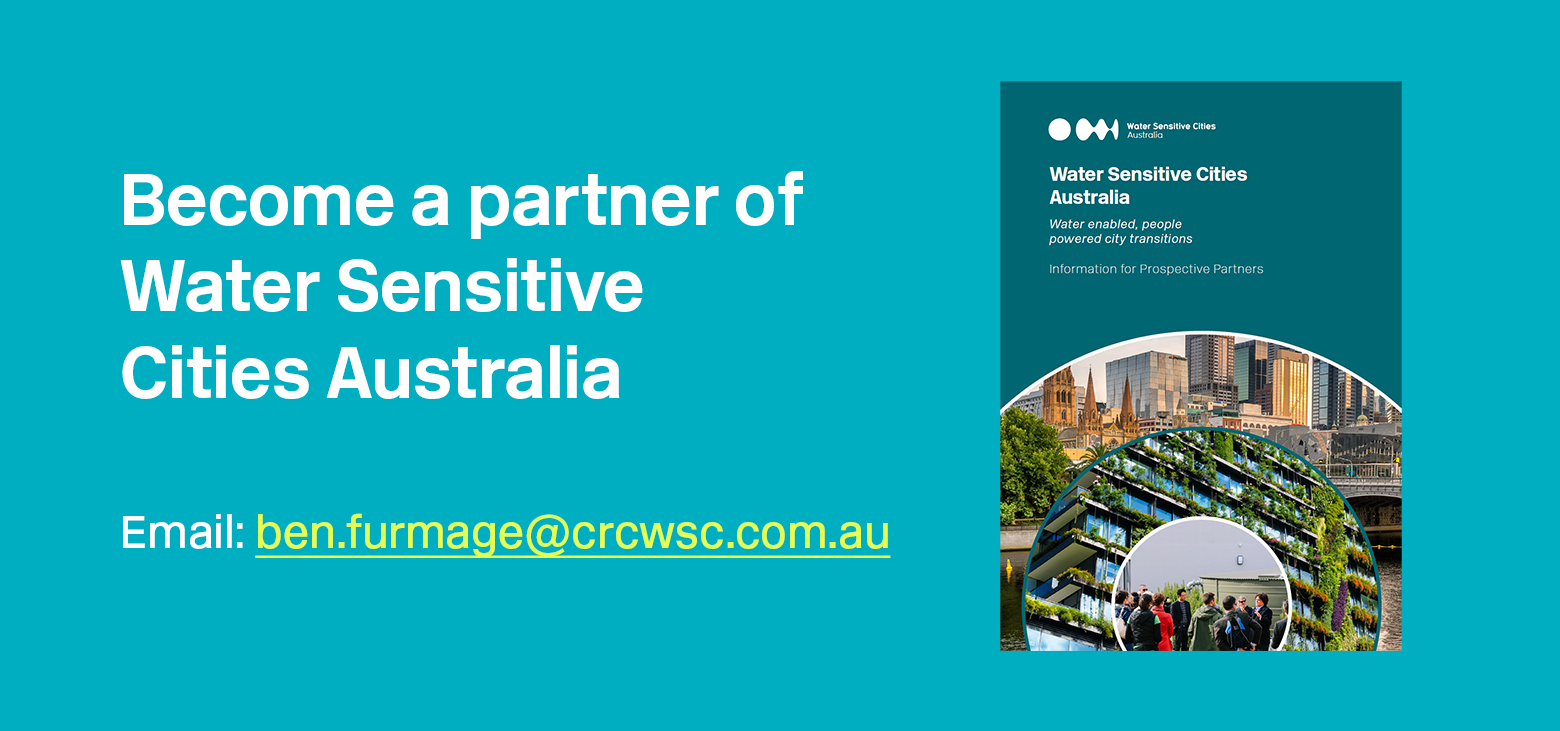
It has been an honour and a pleasure to work at the CRCWSC for the past 4 years, and lead it through the last 18 months.
Now, I’m looking forward to working with industry partners, academic colleagues and the Water Sensitive Cities Australia team so that together, we see water sensitive practices applied as business-as-usual activity in every city, every day.
Ben Furmage
Chief Executive Officer
